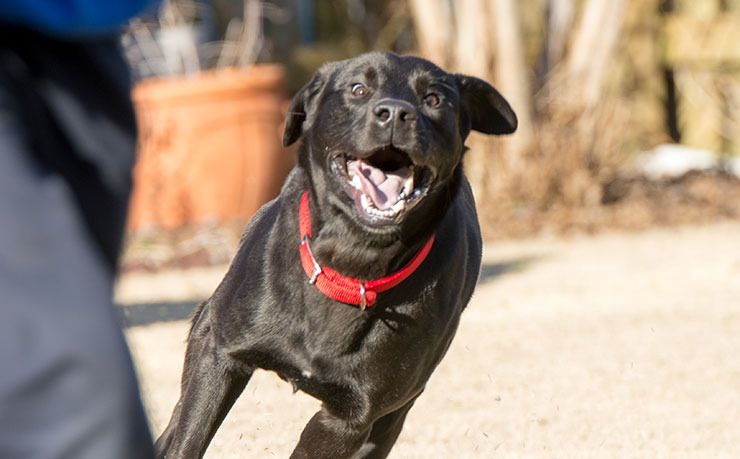It’s time for the Black Dog Institute to front up to its own misnomer and change its name, writes Dean Frenkel.
You wouldn’t want to be born a black dog in South Korea.
President Moon Jae-in is addressing his culture’s antipathy to black dogs by adopting a back mongrel and appointing him the new first dog of Korea.
At first glance, most people won’t realise how offensive the phrase ‘black dog’ is. ‘Black’ describes the dark, heavy and formless emotion and ‘dog’ lightens it up a bit. Apparently the one thing that dogs have in common with depression is that both are hard to shake off.
When the Black Dog Institute was established in Australia 2002, the committee of mental health professionals and academics intended for the phrase to de-stigmatise depression.

Just as nicknames have a purpose, ‘black dog’ was a more pleasant way to describe depression and deflect some of the heavy weight, just as it is euphemistic to say ‘beef’ rather than cow-meat.
Famous English writer Samuel Johnson had used ‘black dog’ to describe depression in the 18th century and the world’s most famous depressive, Winston Churchill, popularised it to describe his own alcohol-related challenges.
But if those mental health pioneers had demonstrated due diligence, they would have decided on a name not bound by superstition, a racist history, and persecution.
The phrase ‘black dog’ had a seedy beginning many centuries ago in medieval England when witch-burning was common – mere sightings of a black dog would lead to panic and over-reaction. ‘Black dog’ was associated with the devil and regarded as a portent of death. Though it would be reasonable to expect such superstitious nonsense to be discarded, it actually never died. The stigmas associated with the phrase live on.
‘Black dog’ has an even more sinister history as a phrase of racist intimidation. In the early 1900’s US singing legend Paul Robeson was confronted by a white supremacist during a college football game, who targeted him with the following sledge:

“Don’t you so much as touch me, you black dog, or I’ll cut your heart out.”
Even today many First Australians would confirm being called ‘black dog’ at some stage in their lives. I heard it many times in the crowd at the footy during the Nicky Winmar days. It always occurred after an Aboriginal player had just flattened another player.
In fact, ‘black dog’ appears to have been used for centuries as a verbal assault by racists toward African Americans, Australian Aboriginals and other native peoples around the world. No spin can erase the stigma of ‘black dog’ from its nasty history.
In the real world, black dogs have nothing to do with depression. More than any other species, dogs are unique – they are symbols of joy, fun and they regularly prompt humans to express and receive love. They are brilliant at breaking through and connecting with people. Their loyalty is unshakable in tireless and courageous devotion to their jobs and their human companions – which is exactly what people need, regardless of whether or not they are sufferers of depression.

They make people smile, they devote their lives to empowering blind, deaf and autistic people, along with sufferers of PTSD to become more functional. In fact for many people, dogs make them happier than drugs – little wonder dogs can be the first treatment for depression.
Those pioneering psychologists tried to be too clever by half when they chose the most unrepresentative symbol for depression. Indeed, there could be no less suitable symbol for a debilitating mental illness.
People with depression deserve a better metaphor to describe their illness. The French call it Avoir le cafard, which translates to ‘having the cockroach’.
The Black Dog Institute has known about the controversy embroiling its name for years, yet has chosen inaction as their strategy; simply hoping it will go away. By neglecting to take action to solve it, much of its excellent work is being compromised.
I’m sure the South Korean President would join me in asking The Black Dog Institute to change its name to something more suitable and effective.
Donate To New Matilda
New Matilda is a small, independent media outlet. We survive through reader contributions, and never losing a lawsuit. If you got something from this article, giving something back helps us to continue speaking truth to power. Every little bit counts.





